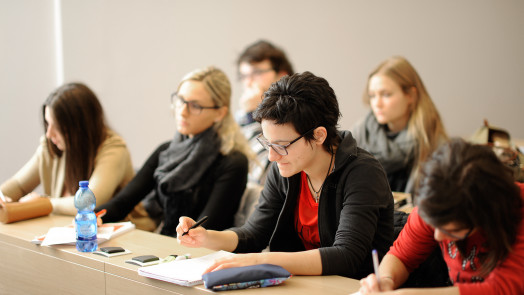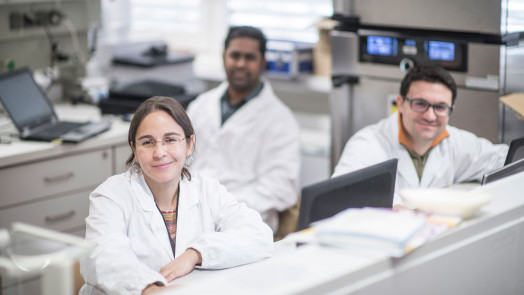PhD in
Mountain Environment and Agriculture
This PhD programme aims at providing talented and motivated students with in-depth research skills that will allow them to tackle relevant agricultural and environmental problems in mountain areas. Students will have the chance to join a range of training opportunities, seminars and conferences and to work under the guidance of supervisors within international research teams.
loghi pnrr

Programme description
The three-year programme is highly interdisciplinary; competences span from ecology to hydrology, from crop production to animal science, from forestry to agricultural engineering, from plant protection to marketing. The PhD projects tackle, among others, the efficient use of natural resources, the sustainable production methods in agriculture and forestry, the effect of climate change on natural and managed mountain ecosystems.
The Scientific Committee includes internationally renowned scientists from Italian and foreign Universities as well as from Research Centres, like Eurac Research and Laimburg Research Centre for Agriculture and Forestry.
The international research training and the skills developed during the doctoral programme will help you meeting your career aspirations, both inside and outside research institutions.
At a glance
Duration of the programme: 3 years
Courses will be taught in English (occasionally, some courses will be taught in Italian and German).
Places available: 9 with scholarship
Scholarships awarded per year 28,000 €
Campus: Bozen-Bolzano
Programme structure
During the first year, you attend courses, prepare and submit your research plan under the guidance of the main supervisor, and you also present a seminar on the state-of-the-art in your area of interest. You are encouraged to develop an excellent command on methodological techniques and to start preliminary research activity.
In the second year, you are expected to carry out research activities according to the research plan and schedule, and to spend a training period in a foreign university or research centre. In the third year, you are mainly required to concentrate yourself on data elaboration and on writing your thesis.
Along the three-year period, you are also required to acquire credit points by attending seminars, summer/winter schools, by presenting contributions to international conferences and by writing scientific papers for high-ranked international journals. The dissertation is expected to be a collection of scientific papers with a comprehensive introduction, discussion and conclusion.
International profile
Your research training will be embedded within several research projects of international relevance and will foresee a cooperation with foreign partners.
The PhD Steering Committee benefits from the presence of internationally reputed professors from foreign universities. The presence of at least one co-supervisor of your PhD project from a foreign research institution is highly recommended. A high percentage of your PhD students’ peers come from abroad.
Your international training will be additionally strengthened by your stay (for a duration of 3 to12 months) in a foreign research institution, chosen to suit your area of interest. This opportunity will broaden your experience. By doing research in highly stimulating and competitive contexts, you will exchange ideas with other scholars and establish a network that will be useful in your future career
People
PhD Programme Coordinator: Prof. Massimo Tagliavini (photo)
Lecturer's Committee secretariat: Prof. Camilla Wellstein
Student Representative in the Lecturer's Committee: Nour Eddine Mayassi
text
Studying at unibz
Living in South Tyrol, Housing, Scholarships and more
Coming to unibz from Abroad
Application procedure, Visa, Residence permit and more
Application and Admission
You can find key information to apply and gain admission to this PhD Programme. Detailed information will be published in May 2026 below in the general and specific calls (PDF).
In order to gain admission to the PhD programme, you will have to demonstrate competence in the English language and be successful in a public competition (see call of below).
2nd Call
Publication of the call: 06/05/2026
Application deadline: by 10/06/2026 (by noon local time)
Admission interviews: to be defined
Publication of ranking lists: by 10/07/2026
Confirmation of the PhD position - 2nd Call
Applicants with scholarship: by 23/07/2026 (by noon local time)
Applicants without scholarship: from 24/07 until 07/08/2026 (by noon local time)
Enrolment: Starting from 24/07 until 30/10/2026 (by noon local time)
In order to apply to this programme you need one of the following qualifications:
- a postgraduate degree as per Italian Ministerial Decree no. 509/1999
- a postgraduate degree as per Italian Ministerial Decree no. 270/2004
- a degree of the former Italian university system, or an equivalent degree obtained abroad (university level education of at least five years).
If you have not yet achieved one of the above mentioned titles within the enrolment deadline, you will be admitted conditionally to the selection procedure and you must produce the degree certificate within the enrolment’s deadline. If not, your application is considered null and void.
Prerequisites for admission to the doctoral programmes are an appropriate educational and/or cultural background and/or experience in the research. Qualifications in the field of interest of the PhD programme are preferred.
The Commission reserves the right to decide and to assess whether or not previous qualifications are suitable for admission purposes.
As the program is offered in English, candidates must possess adequate English skills (corresponding at least to the upper intermediate level, B2), which will be assessed during the interview.
Applications to the selection procedure can be submitted from the date of the announcement of the public competition.
Each application is subject to a payment for administrative expenses (50 €). This registration fee cannot be reimbursed under any circumstances.
In order to apply, you need to follow these steps:
- Create an account at Application Portal and upload in electronic format a passport-size colour photo and a valid ID (passport or identity card, front/back);
- In the application portal, select the PhD programme and pay the registration fee of 50 € (see instructions in the portal);
- Fill in the online form in the same portal and upload the additional required documents (see the specific attachments to the call for each PhD programme).
Completing the application online is the only way to submit the application. Applications will not be considered if:
- incomplete or without compulsory entry qualifications/requirements;
- sent by e-mail.
It is necessary to upload the required documentation for each PhD programme chosen in the portal. A traffic light system indicates complete/incomplete documentation (missing documents will be marked in red).
Only documents uploaded by the deadline will be evaluated. It is advisable to apply online well in advance and to check the portal regularly to take note of any notes concerning missing and/or incorrect documents.
After the deadline, it will no longer be possible to complete/correct incomplete applications.
The University is not liable if the portal is overcharged, due to the net or to the software itself.
To create an application in the portal you need to pay the following fees:
- Administrative fees: € 50
To confirm your study place, you need to log in to the application portal and pay the following fees using one of the payment methods indicated on the portal by the specified deadline.
- One-off registration fee: € 200, including a € 16 revenue stamp
If you fail to meet this deadline, you will automatically lose your place. Once you have confirmed your place by paying the instalment, there is no refund of tuition fees unless you are a non-EU applicant living abroad and you have not received the necessary documents from the Italian authorities in your country.
There are no other fees to be paid.
2nd Call
CALL GENERAL PART (PDF): EN – IT – DE
CALL SPECIFIC PART (PDF): EN – IT – DE
For further questions contact us by phone at +39 0471 012800 or send us an e-mail: phd@unibz.it


